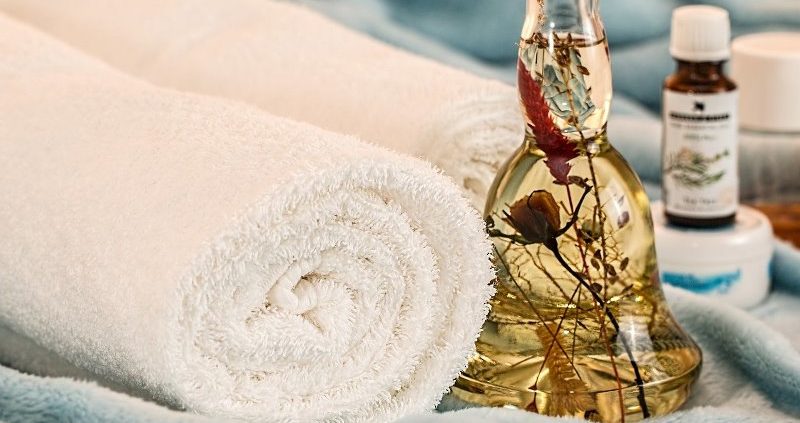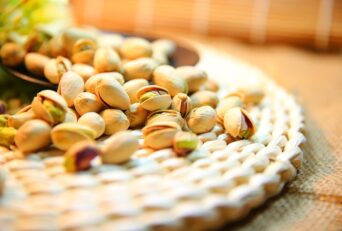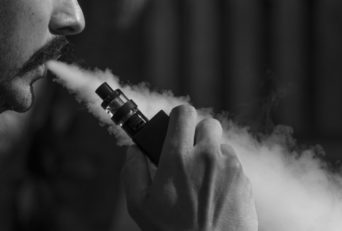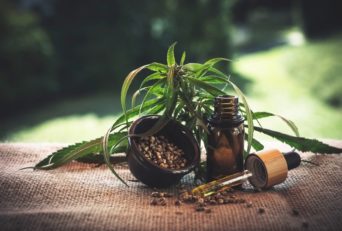Essential oils are extracted from plants or flowers, capturing the essence or scent, through either cold pressing or steam/water. They are not meant to be ingested, but to be used in diffusers or topically, diluted with either water or carrier oil. Essential oils are extremely potent and can actually burn the skin if not used with a less potent carrier oil, such as sweet almond oil or coconut oil.
What is lavender oil?
Lavender essential oil is probably the most popular of all of the essential oils. It is stem-distilled from the lavender plant. Some studies have shown that lavender oil may have antibacterial, antidepressant, antifungal, anti-inflammatory, antimicrobial, and antiseptic properties. In addition to having a nice, subtle scent, it is often used in many different different ways for many different benefits.
How can you use lavender oil?
Lavender essential oil can be used in a variety of different ways. The most common ways are for aromatherapy and in personal care products.
Table of Contents
Aromatherapy
Lavender essential oil is commonly used in diffusers for a variety of reasons. It’s most popularly used to help with symptoms of anxiety, depression, and stress, due to its calming properties. The calming properties of lavender are also used to help promote relaxation and sleep disorders. Of course, it’s not a cure-all oil, but it has been effective in helping with the symptoms of these problems.
Hair Care
Lavender oil is a common home remedy for hair growth. Many people add it to D.I.Y. hair masks, shampoos, or hair oils to aid in hair growth. Lavender stimulates blood flow to the scalp, which is how hair grows. It’s been effective in people suffering from alopecia, and with helping hair to grow longer.
Skincare
Lavender oil can be used to treat a variety of skin issues. Because of its antibacterial properties, lavender oil can be effective in treating acne, especially when combined with sea buckthorn oil, which is also good for the skin. It’s also helpful in treating eczema and other dry skin conditions.
Lavender is also used for burns, including sunburn, because of its anti-inflammatory properties. It’s also good to use on minor cuts and scrapes to help with healing and lowering the chances of it getting infected.
What are the other benefits of using lavender oil?
In addition to calming properties, skin benefits, and hair growth properties, there are some other health claims that lavender oil may have.
Headaches
Some studies have shown that putting lavender oil in a diffuser or simply taking a whiff can help ease migraine pain. This is probably because the oil is known to be calming and reduces tension.
Ear Problems
Although there is insufficient evidence, some people have reported that lavender essential oil is effective in managing the symptoms of certain ear problems. This could be due to the calming properties of lavender, as stress can make certain conditions worse. Applying diluted lavender oil to the outside and behind the ears are common home remedies to relieve the symptoms of earaches, swimmer’s ear, and tinnitus.
Tinnitus is ringing in the ears caused by loud noises, and it’s actually a lot more common than some may think. Unfortunately, tinnitus has become a lot more common due to defective earplugs used by U.S. service members and other professions that require earplugs, such as construction. This has caused many to file claims for compensation.
Conclusion
To get the best results, make sure to use 100% pure lavender essential oil. Also, remember to never use just the essential oil, especially on the skin; it should always be diluted with either a carrier oil or water. Keep in mind that not all of these claims are backed by scientific studies, but they are worth a try if used correctly and if you are not allergic to lavender oil. Even if these remedies work for you, you should still consult your doctor for serious health issues.






